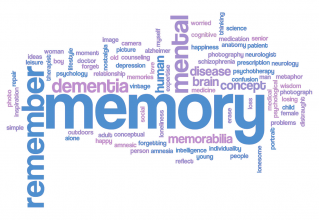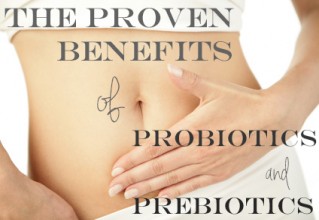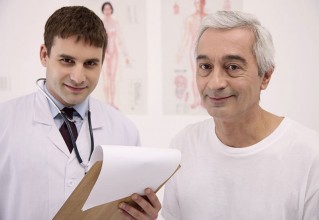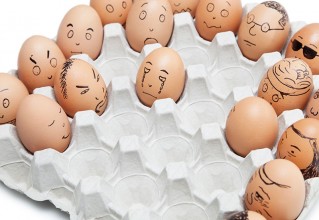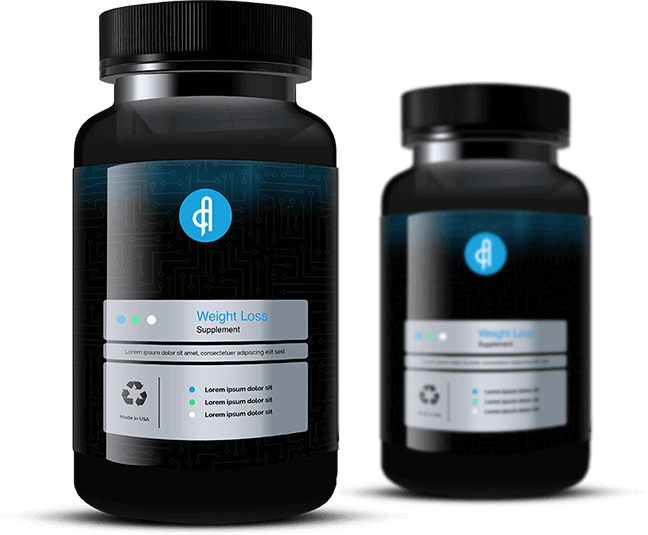RAD Protocol describes the recommended protocol for those recently diagnosed with cognitive decline, dementia or Alzheimer’s disease. First, talk to your doctor. Modern medicine has failed to find a cure. HOWEVER, there are two main classes of drugs that are commonly prescribed and have some evidence of slowing down the disease and in increasing cognition every day.
RAD Protocol is established to help you figure out the most likely path to live the best possible life after a diagnosis of mild cognitive impairment, dementia or Alzheimer’s. We utilize evidence-based recommendations, backed by published papers in peer-reviewed scientific journals to discuss the drugs, supplements, vitamins, lifestyle and diet that have been shown to provide the best possible chance at slowing the progression, or even in reversing symptoms of dementia. Generally when dementia is reversed it is because the dementia had been caused by a disease other than Alzheimer’s.
In this website, RAD Protocol discusses a comprehensive and compelling compilation of information gathered to help people all around the world that are suffering from Alzheimer’s disease.
Based on the latest scientific evidence, breakthroughs and stories, if you suspect you have cognitive decline, dementia or recently were diagnosed with Alzheimer’s, you need to immediately ADOPT OUR PROTOCOL of radical life changes, vitamins and supplements, and talk to your doctor about drugs…. to give yourself the BEST FIGHTING CHANCE to improve, stabilize and possible slow any loss in cognition.
It will certainly improve cognition today, very likely pause or slow down the decline, and MAY potentially reverse it, depending on the exact cause of the decline in cognition.
- 1. What is Alzheimer’s Disease?
– Alzheimer Disease clinical studies - Symptoms of Alzheimer’s Diisease
- How can RAD Protocol help you?
- Alzheimer Disease Survivors
- How to Avoid Alzheimer’s Disease?
- How to Cure Alzheimer’s Disease naturally?
- How to Reverse Alzheimer’s Disease
- How to stop mental decline?
As we all know, “Knowledge is Power” and knowing what lies ahead will give you valuable information about the things that you should know about Alzheimer’s Disease.
As of the moment, there are various herbal and natural substances that those who are age 50 should be adding in our daily intake. This is significant for those who have shown signs of mild cognitive impairment (MCI) or early to moderate stage of Alzheimer’s Disease.
Although, it is not yet clear which specific method is highly effective in reversing or slowing down or if they just help you make neural connections today. Nonetheless, those that are highly at risk of AD should follow these suggestions daily even if it will only increase their mental ability. Still, it adds value to your mind and your body. The only disadvantage of following this healthy regimen is that you become healthier than what you are right now.
- Probiotics and Prebiotics
- Green Tea should be minimum of drinking three cups a day and may need 6+ (one cup has 50mg EGCG and many benefits are noted at the 300mg per day dose). Alternatively, drink one cup of matcha tea per day or add 1tsp per day to smoothies. Green tea leaves can be eaten or thrown in smoothies as well.
Green tea has been implicated in benefiting almost every organ and system in the body. It is:
- cardio-protective;
- neuro-protective;
- anti-obesity;
- anti-carcinogenic;
- anti-diabetic;
- anti-artherogenic
- liver protective and
- beneficial for blood vessel health.
These beneficial effects are seen in doses present both in green tea itself (as a drink) as well as from a supplemental form.
Bioavailability increase when take in quercetin and fish oil or a meal containing them. If eating leaves, check with www.eatgreentea.ccom to verify toxicity of specific types of different brands. If consuming match, know that the caffeine levels which should be 3x standard green tea and more in line with that found in a cup of brewed coffee. So, as not to interfere with sleep it would be wise to eliminate caffeine consumption 6 hours prior to bedtime. There is some concern of lead concentrations when consuming the leaf or matcha.
- Blueberries or blueberry extract which is proven to improve cognition in those experiencing cognitive decline and some evidence that they improve cognition in everybody. Blueberries should be eaten or supplemented daily and they are also a fantastic antioxidants and good for the skin. The recommended optimal dose is 5.5 – 11g blueberry extract or you can eat one cup of blueberries per day or put it in smoothies. After that, monitor blood pressure as blueberry consumption can lower it. The blueberry’s fiber, potassium, folate, vitamin C, vitamin B6 and phytonutrient content, coupled with its lack of cholesterol, all support heart health. The fiber in blueberries helps lower the total amount of cholesterol in the blood and decrease the risk of heart disease.
- Magnesium is something that is lacking from 80% of adults and this is one of the most important minerals that we should intake. This is naturally found in dark, leafy vegetables, and MgT can be supplemented at 1g-2g per day or just make it 2g per day. In a study done to a mouse, MgT treatment reduced Aβ-plaque which is the common plaque found in Alzheimer’s brains, prevented synapse loss and memory decline and even was beneficial in the end stage of the Alzheimer-like disease.
FOOD
Spinach 1 cup: 157 mg 40% Dv
Chard 1 cup: 154 mg 38% Dv
Pumpkin Seeds 1/8 cup: 92 mg 23% Dv
Yogurt or Kefir 1 cup: 50 mg 13% Dv
Almonds 1 ounce: 80 mg 20% Dv
Black Beans 1 cup: 60 mg 15% Dv
Avocado 1 medium: 58 mg 15% Dv
Figs 1 cup: 50 mg 13% Dv
It is highly recommended that you get 2g per day from dietary and supplement sources. You can order a 500mg supplements here: https://goo.gl/8uaFUp.
- Vitamin D16 (D3) is also a common deficiency in our body. Everybody should be getting a 30 minutes to an hour per day of sunlight exposure. This allows our body to take a fat source of 1000-2000 IU per day. According to Dr Lipscomb, the Vitamin D level should be 60 and for the body to achieve that then you can calculate it in through the following:
- To increase level, subtract current level from 60 and multiply by 100 to get dose
Ex: If current level is 40 then subtracting that from 60 yields 20
20 x 100 = 2000 IUs per day
If you take more than 1000 IUs of D3 per day, it is advisable to stack it with Vitamin K2 at 200 mcg per day, according to Dr. Bredesen.
- B-12 (Methyl Cobalamin)
The body is required to get B12 level over 500 which according to Dr. Lispcomb. B12 supplementation is extremely helpful if patient has deficiency and the suggested supplement 1000 mcg (1mg) per day and it is important to track the B12 levels of a patient. This is the common misconception of physicians because they do not track or write level off as normal before diagnosing with AD but it has been said by doctors that B-12 in low level is normal. In the US, having B12 levels between 200 pg/mL and 350 pg/mL are normal levels and it is well established in the scientific literature which in truth has clear B12 deficiency symptoms. Experts who specialize in the diagnosis and treatment of B12 deficiency like Sally Pacholok RN and Jeffrey Stewart DO, suggest treating all patients that are symptomatic and have B12 levels less than 450pg/mL.
- Fermented cod liver oil is the best kind of fish oil which also functions as a blood thinner and good for healthy heart. The average diet is high in Omega 6 and needs more Omega 3 fatty acids (DHA/EPA). Here are some of the cautions that you should take when taking fermented cod liver oil then you should be careful with taking aspirin or blood thinner. It might also increase cholesterol so monitoring from time to time is needed.
American Heart Association recommends 1g per day. 250mg of EPA/DHA is combined minimum dosage and can be achieved through diet. A regular fish oil is much cheaper so if you feel you must stick to a strict budget, use the regular one, although many may claim damage occurs in the heating process.
- Bacopa Monnieri is perennial, creeping herb that has a substance that is important for memory formation. Strong evidence shows that this helps with cognition but must be taken 4-6 weeks before noticeable effect.
Dosage: 150-250mg/day based on Bredesen.
- AshwwagandhaA clear evidence from human studies that Ashwagandha is a significant adaptogen or anti-anxiety supplement. It is neuroprotective, anti-cancer and will enhance virility. It also shows that it can reduce stress, anxiety, cortisol and C-reactive protein. All of the following indications have strong evidentiary support but the impact was minor:- Ashwagandha is an antidepressant.
– It lowers blood pressure.
– It can lower pulse.
– It increase motivation.
– It increases social functioning and subjective well-being.
– It increases testosterone.
– It boosts T Cell count.
– It increases endurance in exercise.
The most effective dosage is 300mg – 500mg per day taken with a meal. If taking one time per day, take with breakfast. Many effects were noted at a much higher dosage, 2000mg taken 3x a day for a total of 6000mg per day. This will make the patient feel better due to adaptogen effects and reversed AB plaques in mice.
- Curcumin – 50omg of curcumin must be paired with something to help uptake, unless using to aid in digestion. This is one of the few things that’s been proven to reduce brain plaques, albeit in mice (it is impossible to study brain plaque in humans since it needs to remove the skull to verify). It can cause diarrhea especially to those who do not often eat Indian food and is typicall paired with black pepper (piperine) or take as theracumin: https://goo.gl/xJGynN.
- Resveratrol – taking one glass Spanish red wine per day or 140-440mg per day as supplement because it increases SirT1 function.
- Acetyl-l-carnitine arginate (ALCAR) is a patented form of carnitine, an amino acid which improves brain power and contributes to neurogenesis. It has been taken by many as nootropic to enhance performance. The daily dosage is 630-2500mg and a minimum dosage of 500mg per day. It is considered to be powerful and leads to nerve growth. Click this link: https://goo.gl/CZF0Uk.
- Gingko Biloba – it has gotten a bit of a bad rap in the early 2000s and this is largely because there was a lot of early speculation that it could become a cure-all but evidence is still strong that it’s beneficial. In a 2009 study, it appeared to be equally as effective as Aricept (240mg v 10mg). Those who combined the two had the best outcome to alleviate cognitive decline, 40-120mg for 3x per day. For cognitive enhancement in normal brain, 120-240mg one to four hours before performance.
- Cacao – eat 26-40g of dark chocolate which has at least 75% of cocoa per day and no need for supplementation. It showed clear evidence of increased blood flow to the brain. In theory, it should improve cognition. In Portuguese study, long-term chocolate consumption reduced risk of cognitive decline by 40% as measured by the MMSE, although similar protection was noted in those who drank at least one coffee per day. If not ingesting, subject can supplement 500mg to 1g per day of cocoa flavanols. It may play protective role during aging.
- Lion’s Mane (yamabushitake) – only one human studied and it used a dosage of 3g per day. It showed strong neuroprotective benefit in the only study conducted. It also showed “significant improvement on a rating scale of dementia in persons suffering cognitive decline.” In rats, when they ate these mushrooms as of 5% of their diet, significant benefits were shown.
- L Methyl Folate – much better than folic acid, this needs to be taken in very small dose of 1000mcg/1mg per day.
- Alpha GPC – 500mg per day is suggested for people to take this. It’s a natural choline found in the brain. Here are some of the evidences that we should consider: https://en.wikipedia.org/wiki/Alpha-GPC
- A Lipoic acid or Alpha-lipoic acid (ALA) is a synthetic version of lipoic acid, which helps cells make energy. It has antioxidant properties and may reduce inflammation. While ALA supplements are generally considered safe, clinical research is very limited particularly for cognition and it has shown variable effects on patients with mild to moderate Alzheimer’s disease.
- Coconut oil – take 10g per day because this is good for the skin and anecdotally great for condition.
- Vinpocetine derived from the Vinca minor (or lesser periwinkle) plant, increases blood circulation to the brain. This is semi-synthetic but highly effective.
- Ginseng – it has shown moderate increase in subjective well-being and just moderate increase in cognition thought to be due to anti-fatigue effects. It has shown limited evidence of neuroprotection/geness but minor evidence of enhanced virility and well-being.
- 5 HTP – it restores the serotonin level which in layman’s term is called happiness. It is important in treating depression although there is no definite benefit to cognition but proves to be a good resource.
- Vitamin B5 requires 150mg of dosage but with limited evidence.
- Still need to check Zinc or Copper levels and then, determine if any supplementation is needed to be addressed
- Evaluation of mercury, cadmium and lead should be done because heavy metal toxicity is an additional factor
- Huperzine –A
Although there are still no proven evidence but a follow up on medical literature suggesting it best not to mix with another cholinesterase inhibitor such as Aricept. It can cause nausea or vomiting but probably not as severely as Aricept. Huperzine –A is a good substitution if the patient has issues tolerating Aricept.
- Coenxyme Q10 – it has also a limited evidence for the healthy but it can be included in different multisupplements as a “just in case.” It is absolutely helpful after a heart attack and it is not recommended for neuroprotection/genesis.
- Insulin nose spray is recommended to be taken as a secondary or round 2 therapeutic method and only few clinicians are prescribing it.
- Taurine
There is still no sufficient evidence at this point but it has proven its efficiency for diabetes patients. It has no proven evidence for neuroprotection/genesis but should be considered for the next round of therapy.
- Rhodiola Rosea – it reduces fatigue and improves cognition. It shows insufficient evidence that the two are related. If fatigued, strong evidence that it improves cognition.
- St Johns Wart (hypericum perfooratum) – it is a dopamine-related anti-depressant, although a warning because it is a CYP34A inducer. Do not use with pharmaceuticals metabolized by this enzyme. This will surely help if it’s safe and not contraindicated to make the patient feel better. The advised dosage is 300mg per day to 300mg for 3x a day. The patient should not be taking any other antidepressant. It is commonly used in German-speaking countries.
- Gastrodin – extracted from the root of an exotic orchid plays a role in neurogenesis, rhythm, blood circulation and neural plasticity. There is only a limited evidence of neurogenesis, used traditionally in Chinese medicine.
- Uridine-5-monophosphate – a nucleotide (organic molecule) or sub-unit of RNA which also contributes to neurogenses.
- Alpha-glyceryl phosphoryl choline is a natural B-vitamin, improves brain speed, as do magnesium L-threonate (a magnesium salt) 79 and methylcobalamin (a form of B12).
- Pregnenolene is a steroid hormone manufactured in the body via conversion of cholesterol, has a positive effects on mood and should be considered in the next round of therapy.
- THC
- Ayahuasca – it stimulates of new brain cells which is considered to be South American psychedelic which should be considered in the next round.
GOOD NEWS! Click this link here:
I. Lifestyle Change
a. First thing you need to do is to change the way you think and the way you view the world with a renewed sense of purpose. Finding meaningful activities which can be tracking and self-diagnosing cognitive states like learning a new language, listening to music, playing for cognitive games, writing, beekeeping, planting or sustaining gardens.
b. Be a lifelong learner which according to Dr. Greg Lipscomb, a neurologist, “Cognitively stimulating activities are likely the best thing he can do.”
c. Create strong social bonds with your spouse, kids, grandkids, church friends and invite friends or family to dinner or just hangout.
d. Continue exercising and it is suggested that exercise should be increased to 4-6 days per week ensuring sustained increased heart rate. You can try some new routines and try more challenging things for a starter which will highly stimulate the brain.
e. Try meditating as it is the best time to lose your mind into nothingness. To submit your mind to relax because basically, humans have been so stressed up that they forget to breathe properly.
f. Changes in diet like having yourself gluten free, intermittent fasting and Mediterranean diet is something that should be tried by every patient because it is a big factor in living a healthy life.
g. Sleep is considered to treat sleep apnea.
II. Supplements
Take all supplements with strong evidence of helping patients as well as those with weak-to-moderate evidence that have no side effects.
III. Drugs
Do not stop taking the prescribed drugs: Aricept and Namenda.
IV. Track everything
There are online tests of cognitive function and track scores to keep you updated with the patients’ progress from diet to exercise and also the drugs being taken. Aside from that, blood pressure and pulse should be tracked every day.
V. Cutting Edge
a. Clinical Trial
Find a trial and participate in it. Hopefully, it works and patient doesn’t get placebo. At least, this helps drive forward a solution to the disease. Find the best trial going on in the United States and try to get the patient to participate. Most promising studies this year seem to be related to ultrasound waves breaking down plaque (Australia and on mice), a protein jab (Scotland on mice and moving to humans in Glasgow this year), NSAIDs and young blood plasma infusions. If there are human trials for these in the US, let’s find them. There are new possibilities in this links below:
https://goo.gl/0vc6WX
https://goo.gl/lcuWQQ
https://goo.gl/T1u0af
b. Plasma transfusions/parabiosis
Parabiosis was studied extensively in the 1950s and for some unknown reason largely ceased by the 1970s. originally, scientists would connect two mice’ circulatory system and tape their legs together so they wouldn’t tear each other apart which resulted in the older mouse receiving the young mouse’s blood and subsequently living much longer than his peers. Since parabiosis is impractical in humans, scientists have experimented with transfusions of blood from patients under 25 years of age. More recently, they’ve determined that plasma transfusions are as effective as whole blood transfusions. Current clinical trials being conducted in Monterey, CA and in Palo Alto at Stanford, many Silicon Valley entrepreneurs have been doing this for the overall youthful benefits. This has shown promising preliminary results and it relates to overall youthfulness but being studied now in AD.
In one trial after another, subjects experience a reversal of aging symptoms across every major organ system. While the mechanisms at play aren’t totally understood, he said, young organisms’ blood not only contains all sorts of proteins that improve cell function; somehow it also prompts the recipients’ body to increase its production of those proteins. More information here: https://goo.gl/lM0crW
Adam spoke with Dr. Jesse Karmazin who is leading the Monterey-based trial, which is in the early stages and he mentioned the Alzheimer’s study at Stanford is nearly finished. Anecdotally, many of the families involved in the Stanford study are speaking of amazing results.
c. Electrical Therapy
It is a non-invasive cranial electrical stimulation (CES).
For both drugs and the supplements, let’s look into issues of tolerance, duration and delayed effect. It should be alternate and take breaks from some of these to avoid tolerance or be conscientious since effects maximize after 6-12 weeks of continual medication.
How to Cure Alzheimer’s Disease Naturally?
I. Lifestyle Change
a. First thing you need to do is to change the way you think and the way you view the world with a renewed sense of purpose. Finding meaningful activities which can be tracking and self-diagnosing cognitive states like learning a new language, listening to music, playing for cognitive games, writing, beekeeping, planting or sustaining gardens.
b. Be a lifelong learner which according to Dr. Greg Lipscomb, a neurologist, “Cognitively stimulating activities are likely the best thing he can do.”
c. Create strong social bonds with your spouse, kids, grandkids, church friends and invite friends or family to dinner or just hangout.
d. Continue exercising and it is suggested that exercise should be increased to 4-6 days per week ensuring sustained increased heart rate. You can try some new routines and try more challenging things for a starter which will highly stimulate the brain.
e. Try meditating as it is the best time to lose your mind into nothingness. To submit your mind to relax because basically, humans have been so stressed up that they forget to breathe properly.
f. Changes in diet like having yourself gluten free, intermittent fasting and Mediterranean diet is something that should be tried by every patient because it is a big factor in living a healthy life.
g. Sleep is considered to treat sleep apnea.
II. Supplements
Take all supplements with strong evidence of helping patients as well as those with weak-to-moderate evidence that have no side effects.
III. Drugs
Do not stop taking the prescribed drugs: Aricept and Namenda.
IV. Track everything
There are online tests of cognitive function and track scores to keep you updated with the patients’ progress from diet to exercise and also the drugs being taken. Aside from that, blood pressure and pulse should be tracked every day.
V. Cutting Edge
a. Clinical Trial
Find a trial and participate in it. Hopefully, it works and patient does not get placebo. At least, this helps drive forward a solution to the disease. Find the best trial going on in the United States and try to get the patient to participate. Most promising studies this year seem to be related to ultrasound waves breaking down plaque (Australia and on mice), a protein jab (Scotland on mice and moving to humans in Glasgow this year), NSAIDs and young blood plasma infusions. If there are human trials for these in the US, let’s find them. There are new possibilities in this links below:
https://goo.gl/0vc6WX
https://goo.gl/lcuWQQ
https://goo.gl/T1u0af
b. Plasma transfusions/parabiosis
Parabiosis was studied extensively in the 1950s and for some unknown reason largely ceased by the 1970s. originally, scientists would connect two mice’ circulatory system and tape their legs together so they wouldn’t tear each other apart which resulted in the older mouse receiving the young mouse’s blood and subsequently living much longer than his peers. Since parabiosis is impractical in humans, scientists have experimented with transfusions of blood from patients under 25 years of age. More recently, they’ve determined that plasma transfusions are as effective as whole blood transfusions. Current clinical trials being conducted in Monterey, CA and in Palo Alto at Stanford, many Silicon Valley entrepreneurs have been doing this for the overall youthful benefits. This has shown promising preliminary results and it relates to overall youthfulness but being studied now in AD.
In one trial after another, subjects experience a reversal of aging symptoms across every major organ system. While the mechanisms at play aren’t totally understood, he said, young organisms’ blood not only contains all sorts of proteins that improve cell function; somehow it also prompts the recipients’ body to increase its production of those proteins. More information here: https://goo.gl/lM0crW
Adam spoke with Dr. Jesse Karmazin who is leading the Monterey-based trial, which is in the early stages and he mentioned the Alzheimer’s study at Stanford is nearly finished. Anecdotally, many of the families involved in the Stanford study are speaking of amazing results.
c. Electrical Therapy
It is a non-invasive cranial electrical stimulation (CES).
For both drugs and the supplements, let’s look into issues of tolerance, duration and delayed effect. It should be alternate and take breaks from some of these to avoid tolerance or be conscientious since effects maximize after 6-12 weeks of continual medication.
Alzheimer’s disease is a scary and terrible diagnosis because the very definition of AD is irreversible cognitive decline. Millions of people have had it; it does not choose its next victim because even extremely powerful and wealthy people have had it and died from it.
It is said that preparing for the worst but there is a great promise in following the RAD therapy which is described here like combining the drugs, supplements, diet and lifestyle changes could result in significant benefits. Exploring a few other cutting edge trials such as plasma transfusion may also be worthwhile.
There will be a heavy toll on primary caregiver and much support should be given to the caregivers as well. Compliance with this system will heavily depend on them as well.
Research related to preventing, curing and reversing Alzheimers Disease and/or Dementia
“More than 5.3 million Americans are living with Alzheimer's disease, and the numbers are expected to rise as
“More than 5.3 million Americans are living with Alzheimer's disease, and the numbers are expected to rise as
“More than 5.3 million Americans are living with Alzheimer's disease, and the numbers are expected to rise as
“More than 5.3 million Americans are living with Alzheimer's disease, and the numbers are expected to rise as
Protein jab reversed Alzheimer's plaques in mice. Set to be tested in humans.
Outside Research
Our Supplements

SUBSCRIBE
Subscribe our newsletter, join us and get the latest updates & discounts!
